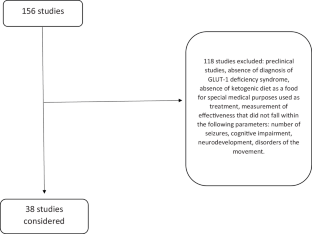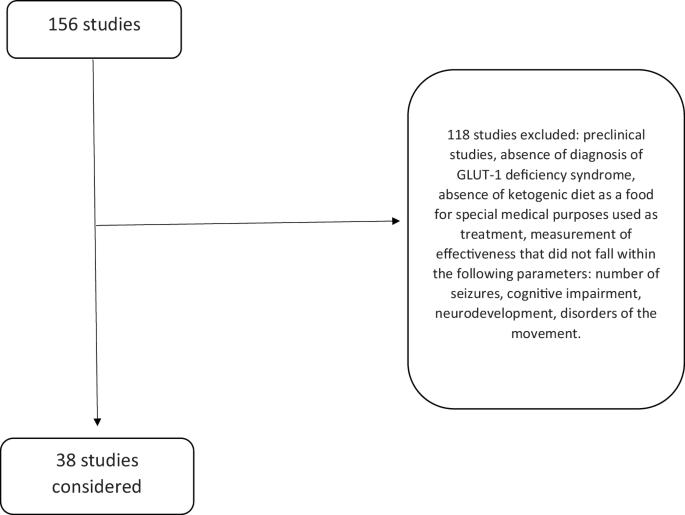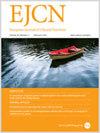1 型葡萄糖缺乏综合征患者的饮食管理和治疗途径:以欧洲监管框架为重点的综述。
IF 3.6
3区 医学
Q2 NUTRITION & DIETETICS
引用次数: 0
摘要
背景:葡萄糖转运蛋白GLUT-1缺乏综合征(GLUT-1 DS)是由编码葡萄糖转运蛋白GLUT-1 DS的SLC2A1基因突变引起的一种罕见疾病。目前,这种疾病还没有适用的药物疗法,而生酮饮食(KD)是治疗这种疾病最有效的方法:本研究的目的是回顾已发表的文献,评估生酮饮食对 GLUT-1 DS 综合征饮食治疗的有效性,并根据目前欧洲国家卫生服务监管框架,描述 GLUT-1 DS 综合征患者的最新治疗途径:方法:于2023年9月10日进行文献检索,纳入所有针对被诊断为GLUT-1缺乏综合征并接受KD治疗的人类进行的研究:结果:共摘录了 156 篇科学论文。结果:共摘录了 156 篇科学论文,按照排除标准,38 篇符合条件。在 38 项研究中,有 29 项研究的主要结果是通过测量癫痫发作次数来确定 KD 的疗效,结果表明接受 KD 治疗的患者病情有所好转,癫痫发作次数明显减少。目前,在欧盟国家中,只有一个国家的国家医疗系统为 KD 提供全额报销:讨论:尽管KD对治疗GLUT-1 DS至关重要,但根据现行食品法规,KD的评估并不以明确的疗效为基础,而仅以安全性为基础。因此,考虑到这些产品在欧洲市场的销售情况,最好在未来几年开展临床研究,确定目标人群的疗效。本文章由计算机程序翻译,如有差异,请以英文原文为准。


Dietary management and access to treatment for patients with glucose deficiency syndrome type 1: an overview review with focus on the European regulatory framework
Glut-1 deficiency Syndrome (GLUT-1 DS) is a rare disease caused by a mutation in the SLC2A1 gene that codes for the glucose transporter protein GLUT-1 DS. Currently, there is no indicated drug therapy for this condition and ketogenic diet (KD) is the most effective remedy to treat it. The objective of this study was to review the published literature that evaluated the effectiveness of KD in the dietary management of GLUT-1 DS syndrome, describing the state-of-the-art the treatment pathway for patients with GLUT-1 DS syndrome in light of the current European regulatory framework within the National Health Services. The literature search was carried out on September 10, 2023, and all studies conducted in humans diagnosed with GLUT-1 deficiency syndrome and treated with KD were included. A total of 156 scientific papers have been extracted. Applying the exclusion criteria, 38 articles have been considered eligible. In 29 out of 38 studies, the main outcome for determining the efficacy of KD was the measurement of the number of epileptic seizures, demonstrating that patients treated with KD experienced improvements with a clear reduction in the number of epileptic attacks. Currently, in the European Union, only one country provides full reimbursement by the national health system for KD. Although they are crucial for the treatment of GLUT-1 DS, according with current food regulations, KD are not evaluated on the basis of an unambiguous efficacy result, but only on the basis of safety. As a result, it is desirable to carry out clinical studies in the coming years based on the determination of efficacy in target populations, also in view of the marketing of these products on the European market.
求助全文
通过发布文献求助,成功后即可免费获取论文全文。
去求助
来源期刊
CiteScore
10.60
自引率
2.10%
发文量
189
审稿时长
3-6 weeks
期刊介绍:
The European Journal of Clinical Nutrition (EJCN) is an international, peer-reviewed journal covering all aspects of human and clinical nutrition. The journal welcomes original research, reviews, case reports and brief communications based on clinical, metabolic and epidemiological studies that describe methodologies, mechanisms, associations and benefits of nutritional interventions for clinical disease and health promotion.
Topics of interest include but are not limited to:
Nutrition and Health (including climate and ecological aspects)
Metabolism & Metabolomics
Genomics and personalized strategies in nutrition
Nutrition during the early life cycle
Health issues and nutrition in the elderly
Phenotyping in clinical nutrition
Nutrition in acute and chronic diseases
The double burden of ''malnutrition'': Under-nutrition and Obesity
Prevention of Non Communicable Diseases (NCD)

 求助内容:
求助内容: 应助结果提醒方式:
应助结果提醒方式:


